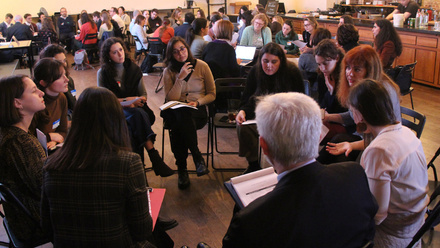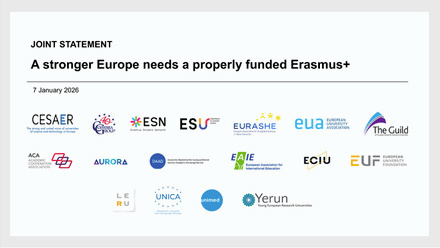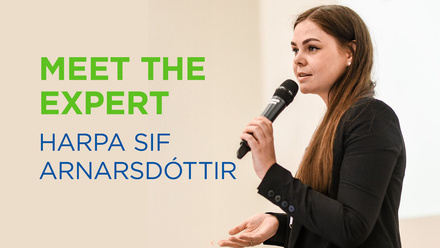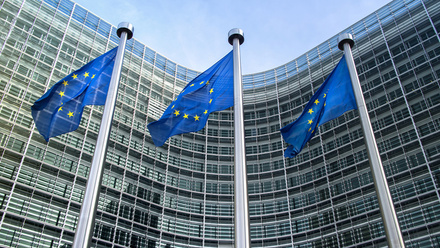Erasmus+ digitalisation: The importance of sharing tasks, responsibilities and decision-making powers
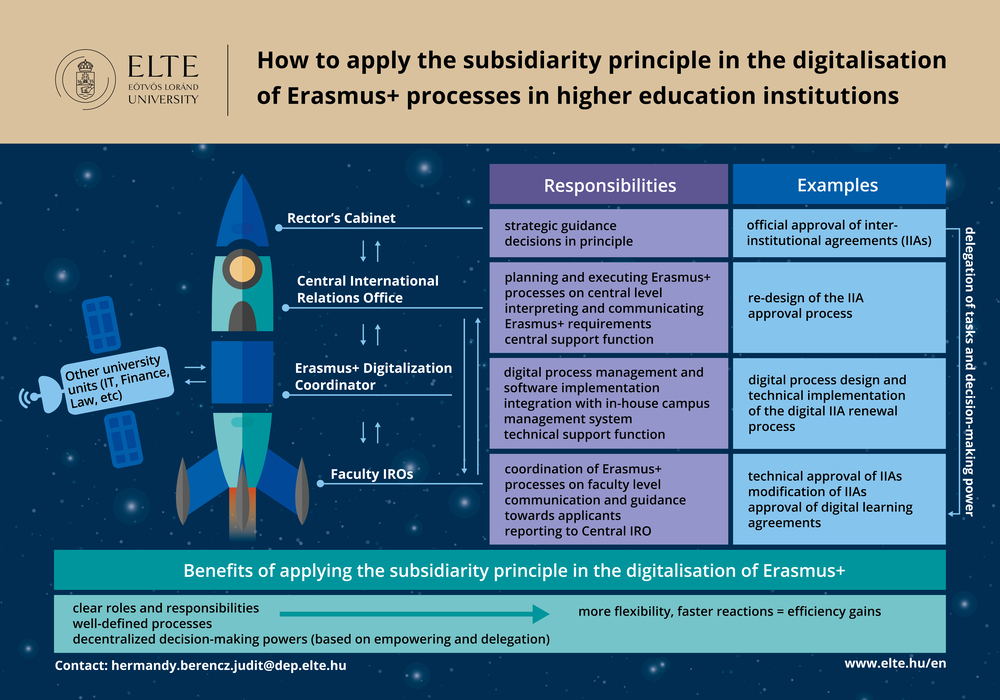
Click on the image to see full view
During the 34th Annual EAIE Conference and Exhibition in Toulouse, Eötvös Loránd University (Budapest, Hungary) presented a poster titled ‘How to apply the subsidiarity principle in the digitalisation of Erasmus+ processes in higher education institutions’. The session introduced the main stakeholders of digitalisation within HEIs and suggested a possible division of tasks and responsibilities amongst those stakeholders. This poster blog addresses the main key takeaways from the poster and the most important feedback received from the public.
One of the latest efforts from the European higher education community is to increase the digitisation of administrative processes to make Erasmus+ exchanges simpler and more accessible. The digitalisation of Erasmus+ processes requires the involvement of staff from different departments in higher education institutions (HEIs), such as the international relations offices, IT departments, finance and legal units, and others. When it comes to designing these internal processes, it is key to ensure that all stakeholders are involved, but no one is overburdened by the tasks that digitalisation entails. Following the subsidiarity principle in process design is a pragmatic approach that saves time and energy for all levels of stakeholders. In short, it means placing decision-making power as close as possible to the level where actions are implemented and where responsibility lies. Clear lines of responsibility are linked to roles, reduce confusion, and increase efficiency.
A useful example from Eötvös Loránd University (ELTE) relates to the sharing of tasks and responsibilities in managing Erasmus+ inter-institutional agreements (IIA). Before the move to a digitalised process, all IIAs were signed by the rector of the university. Now, the IIAs are approved via the Erasmus Without Paper network, resulting in the digital handling of agreements having been delegated to the faculty level, in addition to the rector's overall approval authority. Changes or adaptations to the IIAs are dealt with at the faculty level, while new agreements can only be initiated with the approval of the rector. As ELTE is dealing with over 1350 IIAs, a system was created in which the central International Relations Office has an overall supportive function, while the faculty IROs are delegated the rights and tasks related to negotiating and adapting the IIAs belonging to their fields. In order to facilitate the process of digitalisation, ELTE introduced a new role, namely that of an ’Erasmus+ digitalisation coordinator’, who acts as a bridge between the different fields and organisational units.
After having presented this poster and case study at the 2024 EAIE conference, contact with other HEI professionals has confirmed that the presented roles and identified tasks are universal in that they do exist in other HEIs as well. Feedback was also received about the importance of the presented coordinatory role, for example, in facilitating the flow of information in the digitalisation process. However, discussions also showed that the presented division of tasks and circle of responsibilities may differ from institution to institution, which is understandable as the existing schemes and practices tend to vary from one another. Based on the experiences so far at ELTE and discussions with colleagues at other HEIs, the presented setup has proven to be a fitting example which can be flexibly transformed and adapted to local needs and possibilities.


